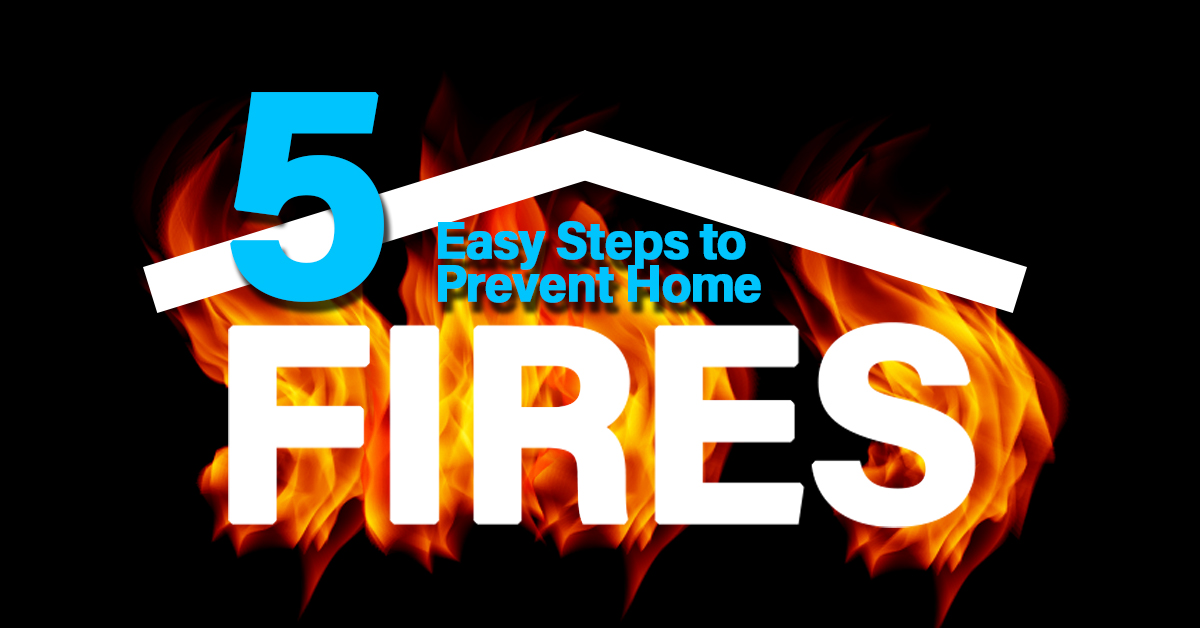Five Easy Steps to Prevent Home Fires

Five Easy Steps to Prevent Home Fires
It is one thing to have a good alarm system in your home to quickly notify you of smoke or a fire. It is another to prevent fires in the first place. Here are five easy steps to prevent home fires in your house.
- Check the Wall Sockets in Your Home
Electric outlets in your walls that are exceptionally warm could very well be a sign of an electrical problem that could cause a fire. Place your hand over any sockets, being cautious not to insert any digits into the prong holes. If they feel warm or even hot, turn off the appropriate circuit breaker and contact an electrician.
- Check Your Electrical Switches
All the electrical switches in your home should operate smoothly and without hesitation. If there appears to be loose spots or if lights flicker at all, the switch may be wearing out and not be making full contact. This could potentially create sparks and cause a fire. While light switches are easy to replace, if you are at all unsure of replacing switches yourself, contact an electrician.
- Clean Your Dryer Vent
There are some 17,000 dryer vent fires in the country annually. These fires result in an estimated 50 deaths, hundreds of injuries and hundreds of millions of dollars in property losses. Simply keeping your dryer vent clean and clear of clogs can prevent a potentially damaging house fire in your home.
- Keep Your Oven and Stove Clean
Home fires can inadvertently start in a dirty oven or from stove top burners that have a build up of grease or other material. Make sure flammable materials are kept away from burners including dish or paper towels. In-oven fires, similar to those of flare-ups in a barbecue grill, can also start as the result of built up grease and spills. Keep oven tops and ovens themselves clean to avoid this type of fire hazard.
- Inspect All Electrical Cords
One of the easiest steps you can take in preventing home fires is inspecting all extension and electrical cords that are in use. Check to make sure plugs are securely and properly connected and that there are no bare wires. If a cord appears damaged or if a light flickers when the cord is moved, do not use it. Do not use extension cords for heaters, hotplates or other higher amperage appliances.
You can also protect your home by scheduling a homeowners’ insurance review. Contact our independent agents today to schedule your no-cost, no-obligation review.









